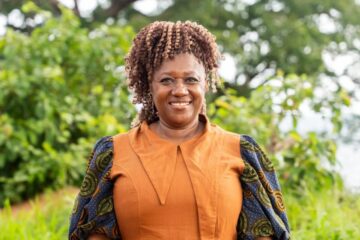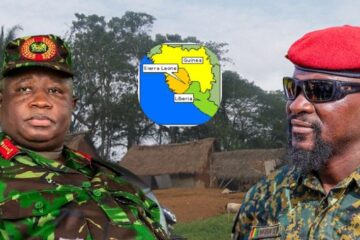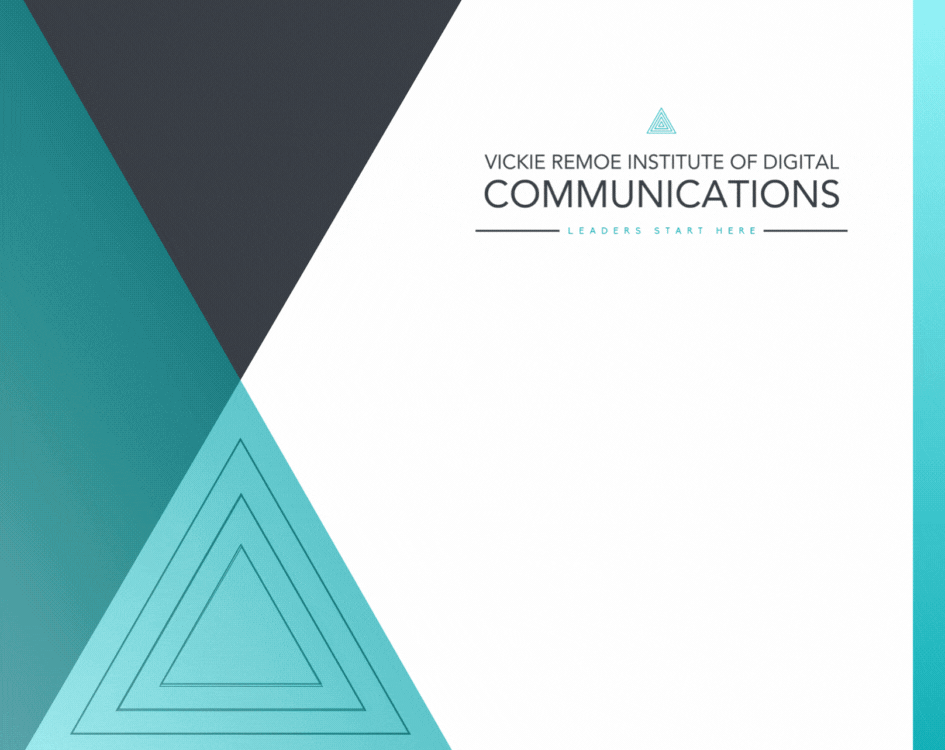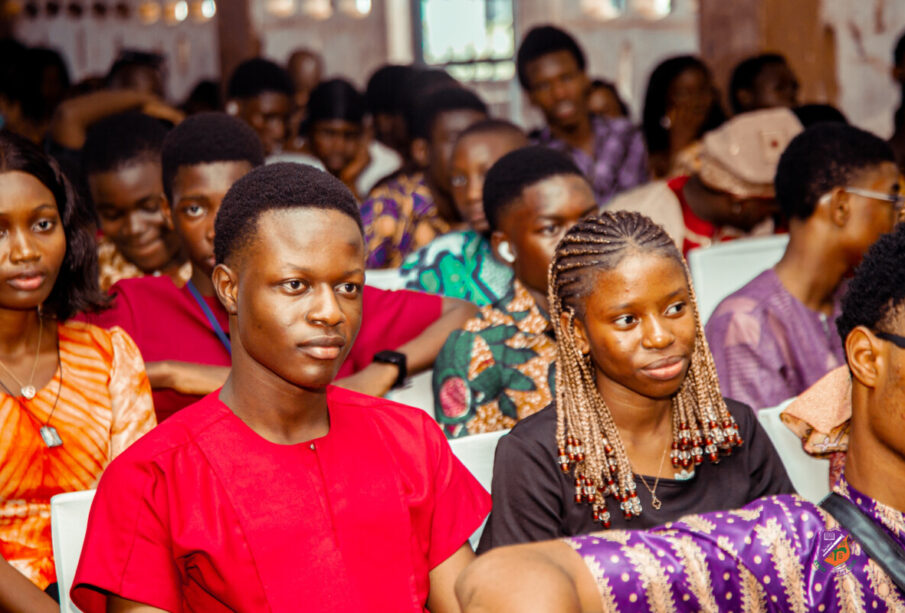
The Sierra Leone Grammar School (SLGS) wrapped up its third annual Tech Bootcamp, held under the theme “Advancing Innovation.” Funded by the old boys and old girls of Sierra Leone Grammar School and Annie Walsh Memorial School, with additional support from One Network, which provided T-shirts and data connectivity
The four-week programme, which commenced in July and ends in August 2025, was designed to prepare young Sierra Leoneans for the digital age, with a mission to equip students with hands-on skills in Science, Technology, Engineering, Arts, and Mathematics (STEAM).
This year, the programme introduced a cutting-edge focus on Artificial Intelligence (AI), giving learners practical exposure to AI-powered tools in video, audio, photography, and design. Students explored ethical AI applications in storytelling, editing, and sound engineering skills that are increasingly vital in today’s creative industries.
One of the highlights of this year’s camp was a collaboration with the Sierra Leone Chess Federation, where national champions taught students how strategic thinking in chess parallels problem-solving in technology.
In addition to digital courses, participants engaged in classes like Mathematics for Problem Solving, Chess for Strategic Thinking, and Entrepreneurship for Real-World Impact, ensuring a holistic learning experience.
This year’s bootcamp attracted over 250 students representing a diverse group of schools across Sierra Leone. For the first time, the program introduced 11 paid internships for university students, offering real-world experience in coding, robotics, and multimedia.
Bridging Sierra Leone’s Digital Divide
From its humble beginnings in 2019, when old boys of Sierra Leone Grammar School invested in ICT infrastructure to bridge the digital gap, the programme has grown into a national platform.
“We started by bringing Internet connectivity and new laptops into the school,” said Nick Asgill, Multimedia Director.
“We realized the only way to truly benefit from this facility was to open it up to others. Today, we have students from over 46 schools, with a 50/50 male-female ratio.”
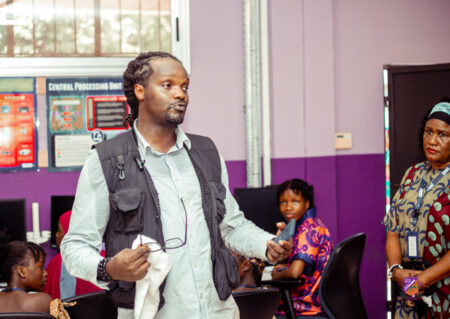
Nick Asgill, Multimedia Director
Sierra Leone’s digital literacy rate remains below the global average, with a recent report revealing that only 20.7% of the population used the internet in early 2025. While mobile connections are increasingly common, significant skill gaps persist due to challenges such as limited internet access, high costs of devices and data, gender divides, and disparities in educational access.
The SLGS STEM Holiday Programme directly addresses these barriers by providing access to ICT infrastructure, hands-on training, and mentorship at no cost to students. By introducing participants to critical skills such as coding, robotics, AI applications, and digital media production, the initiative empowers young people to not only use technology but to create with it.
“The continued success of the STEM Holiday Club proves that Sierra Leonean students are hungry for innovation,” said Rev. Canon Leonard Ken Davies, Principal of Sierra Leone Grammar School.
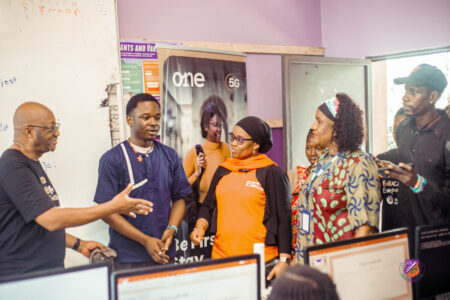
Donald Smith, STEM Program Lead (L), and other dignitaries doing a media tour.
Moreover, the programme’s 50/50 gender balance helps narrow the digital gender gap, while its reach across 46 schools nationwide ensures inclusivity beyond urban centers. With the introduction of paid internships for university students and plans for weekend STEM clubs and vocational courses, this grassroots effort complements national digital transformation strategies by building a pipeline of digitally skilled talent ready to lead innovation in Sierra Leone.
Fatima Isatu Bah, a student at Milton Margai Technical University, shared her experience on the effect of the tech boot camp.
“I applied because I wanted to learn coding,” she said. “Today, I’m working on a project to build a resume website. Before this, I had no idea how big STEM really was. This programme opened my eyes to opportunities I never imagined.”
Joel Blessing Emmanuel Shorunkeh-Palmer, a 15-year-old from Sierra Leone Grammar School, shared his journey:
“I joined to learn new skills I can use in the future. I’m working on an AI project that teaches people how to take care of the environment. The best part was meeting people from different schools and working as a team.”
For many, the bootcamp was their first encounter with technology Mr. Fahwundu, a coding facilitator, reflected on the transformation:
“We started with students who barely knew how a computer works. By the end, they were writing their first lines of code and creating simple games. It’s amazing how far they’ve come in just four weeks.”
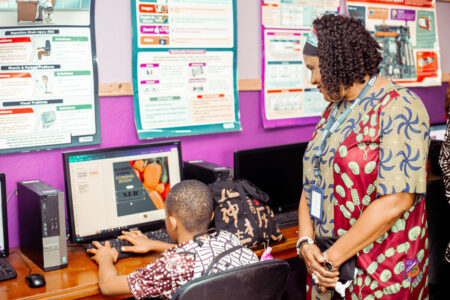
A Graphic design pupil in class

Rev. Canon Leonard Ken Daivies, principal of the Sierra Leone Grammar School
Building a Hub for Innovation
What started as a holiday tech bootcamp is now evolving into a long-term movement. The organisers of the SLGS STEM Holiday Club have ambitious plans to transform the programme into a sustainable platform for innovation over the next five years.
Beyond the annual four-week bootcamp, the team plans to introduce weekend STEM clubs where students can continue learning throughout the academic year. A Multimedia Club will also be launched at Sierra Leone Grammar School, giving students consistent access to creative digital tools and mentorship.
The organisers plan to expand beyond the annual bootcamp by launching STEM weekend clubs and a Multimedia Club at the school.
“In the next five years, we aim to introduce vocational courses and grow this platform into a hub for tech talent in Sierra Leone,” said Asgill.
With these plans, the SLGS STEM Holiday Club is set to become more than a seasonal initiative. It’s on track to reshape how young Sierra Leoneans engage with technology and prepare the next generation of digital leaders.
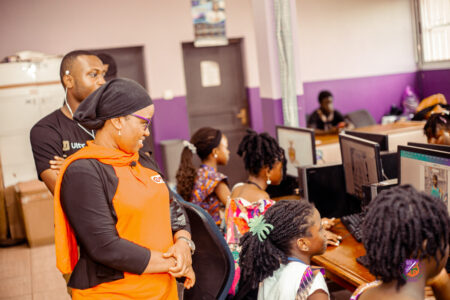
Munaritu Issifu, Plan Country Director reviewing the work of pupils

